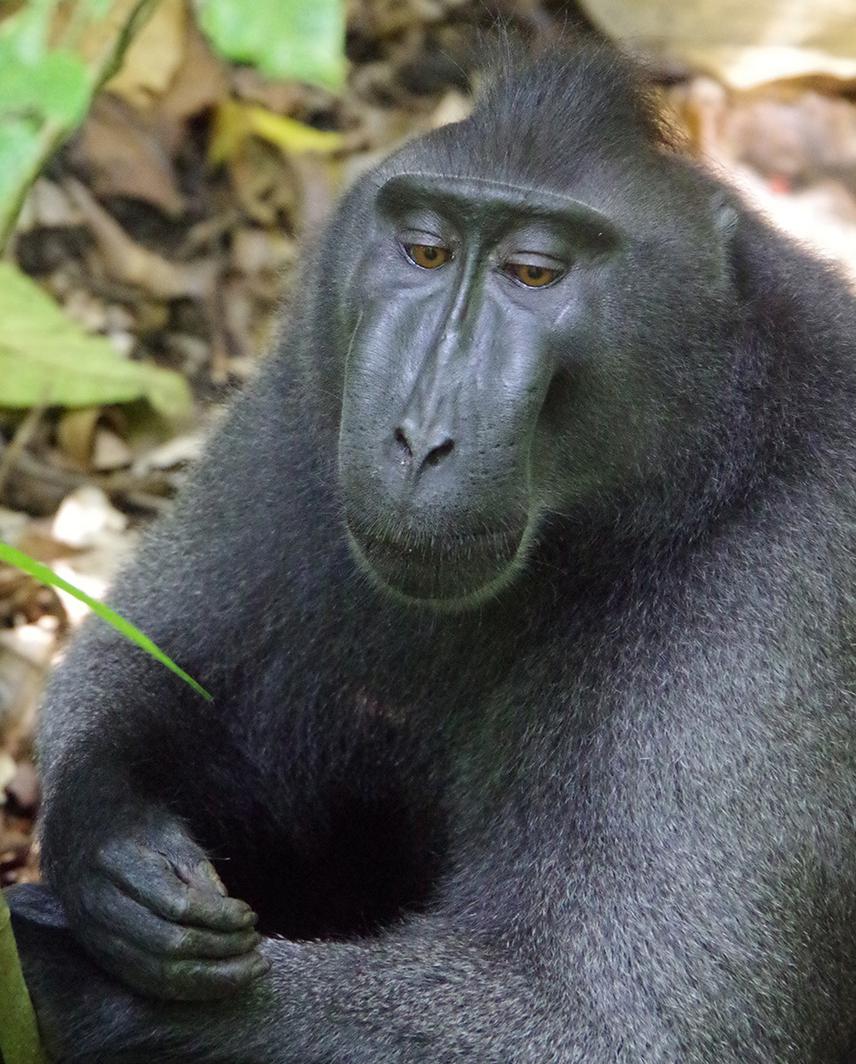Dominique Bertrand
My aims are to test the hypothesis that levels of stress are related to levels of tourism and/or range-restriction in groups of wild Macaca nigra, to pinpoint the tourist characteristics and range-restriction methods that are most and least stressful, and to distinguish between acute vs. chronic stress responses.

The concept of eco-tourism stems from the belief that tourism can be both a financial boon to local populations and help conserve the environment. However, these goals are not always achieved and are sometimes accompanied by serious anthropogenic stressors. Unavoidable, chronic exposure of primates to humans can be stressful, as indicated by physiological and behavioral responses.
Tangkoko Nature Reserve, Sulawesi, Indonesia is home to three social groups of Macaca nigra that are exposed to varying intensities of anthropogenic stress, including tourism and defense from crop-raiding (via range restriction).
I aim to determine whether the presence of tourism/range restriction is related to increases in stress responsiveness, identify which aspects of tourism and which means of range restriction are most stressful, and determine whether the physiological responses to stress are acute or chronic in order to make recommendations for their management.
My findings will provide useful information and enhanced tools for detecting acute and chronic stress in the field that site managers and researchers will be able to use to assess and further examine responses to many potential stressors. Most importantly, the data collected here will shed light on whether primate groups exposed to tourism for decades fully habituate (i.e., learn that there are neither adverse nor beneficial consequences of anthropogenic stimuli) or whether their apparent tolerance masks abnormal stress responses likely to be detrimental to fitness.